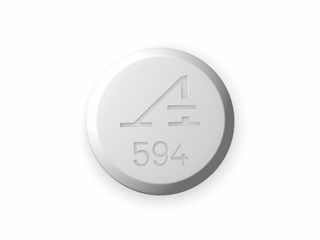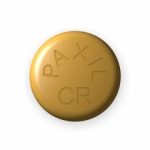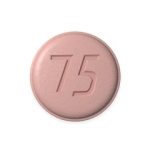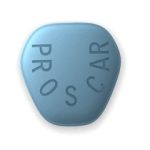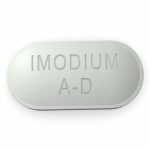Anaprox (Naproxen)
Generic name: Naproxen.
Dosage: Anaprox 500mg.
Category: Pain Relief,Arthritis.
Buy Anaprox online without prescription: Anaprox Online Pharmacy
Anaprox – recommendations for use and dosage
Naproxen sodium belongs to a class of non-steroidal anti-inflammatory drugs (NSAIDs). This medication is used to reduce intense pain, inflammation and stiffness caused by conditions like osteoarthritis, rheumatoid arthritis, psoriatic arthritis, etc. It can be also applied in other cases.
Dosage and direction
Take Anaprox by mouth with a glass of water, with or without food. Avoid cutting, crushing or chewing this medicine.
Do not take the medicine more often than it is prescribed. Do not give up taking it except on the advice of your doctor.
It may need time for the medicine to help.
Consult your doctor concerning proper dose for you.
Precautions
Before taking Anaprox tell your doctor or chemist if you are allergic to it; or if you have other allergies.
Naproxen, like other NSAIDs, can inhibit the excretion of sodium and lithium. Be cautious when using this drug along with lithium supplements.
Avoid drinking alcohol and smoking while being treated with this medication.
Aged people can be more sensitive to side effects of the medicine.
During pregnancy this treatment should be used only when strongly necessary.
As this medicament can be absorbed by skin, women who are pregnant or may become pregnant should not manipulate this medicine.
Contraindications
Anaprox should not be used by patients with sodium-sensitive hypertension as well as by patients having demonstrated a reaction of hypersensitivity to it.
Possible side effect
The most common side effects are dry mouth, dizziness, irritability, sedation, insomnia, urinary retention, etc.
A very serious allergic reaction rarely occurs. Many people using this medicine do not have serious side effects.
Turn to your doctor or pharmacist for more details.
In case you notice the effects not listed here, contact your doctor or pharmacist.
Drug interaction
Tell your doctor or pharmacist of all prescription and nonprescription/herbal products you may use before using this medication.
Naproxen, sold under the brand name Anaprox among others, is a nonsteroidal anti-inflammatory drug (NSAID) used to treat pain and inflammation. Here are some common drug interactions with naproxen:
- Aspirin. Combining naproxen with aspirin may increase the risk of gastrointestinal bleeding and ulcers. Additionally, taking naproxen with aspirin may reduce the cardioprotective effects of aspirin.
- Other NSAIDs. Concomitant use of naproxen with other NSAIDs, such as ibuprofen or diclofenac, may increase the risk of gastrointestinal side effects, including bleeding and ulcers.
- Warfarin and other anticoagulants. Naproxen may increase the effect of anticoagulants such as warfarin, resulting in an increased risk of bleeding.
- Selective serotonin reuptake inhibitors (SSRIs). Naproxen may increase the risk of bleeding when taken with SSRIs such as fluoxetine or sertraline.
- Corticosteroids. Combining naproxen with corticosteroids such as prednisone may increase the risk of gastrointestinal bleeding and ulcers.
- Methotrexate: Naproxen may decrease the elimination of methotrexate, resulting in increased levels of methotrexate in the body and an increased risk of methotrexate toxicity.
- ACE Inhibitors: Naproxen may reduce the effectiveness of ACE inhibitors in the treatment of hypertension, which could potentially lead to increased blood pressure.
- Lithium: Concomitant use of naproxen and lithium may increase blood lithium levels, resulting in lithium toxicity.
Before you start taking naproxen, it is important to discuss all medications, including over-the-counter medications and supplements, with your doctor or pharmacist to avoid potential interactions and side effects.
Missed dose
If you have missed your dose, take it as soon as you remember. If you see that it is near the time for the next dose, skip the missed dose and resume your usual dosing schedule. Do not take your dose twice.
Overdose
If you think you have used too much of this medicine seek emergency medical attention right away. The symptoms of overdose usually include chest pain, nausea, irregular heartbeat, and feeling light-headed or fainting.





